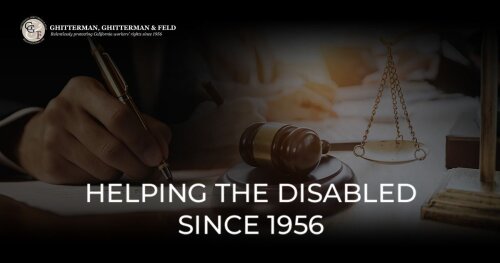Best Birth Injury Lawyers in Vermont
Share your needs with us, get contacted by law firms.
Free. Takes 2 min.
Or refine your search by selecting a city:
List of the best lawyers in Vermont, United States
About Birth Injury Law in Vermont, United States
Birth injury law in Vermont deals with the legal rights and remedies available to families when a newborn suffers harm during childbirth due to medical negligence, malpractice, or preventable errors by healthcare providers. Birth injuries can range from mild, temporary issues to life-altering disabilities. Vermont law allows families to hold responsible parties, such as doctors, nurses, or hospitals, accountable if negligence leads to a birth injury.
Why You May Need a Lawyer
Seeking legal help in birth injury cases is often crucial because these matters can be highly complex and emotionally challenging. Common situations where families may need a lawyer include:
- Unexplained or severe injuries to a baby during labor or delivery
- Delayed diagnosis or improper treatment of maternal or fetal distress
- Failure to perform a necessary cesarean section
- Improper use of forceps, vacuum extractors, or other delivery tools
- Lack of informed consent about birth procedures
- Long term disabilities or medical conditions resulting from birth
- Disputes with hospitals or insurance companies over compensation for injuries
An experienced birth injury lawyer can help investigate the circumstances of the injury, review medical records, consult with experts, and pursue compensation for medical expenses, long term care, lost income, and emotional distress.
Local Laws Overview
In Vermont, birth injury claims generally fall under medical malpractice laws. Here are some key legal aspects to consider:
- Statute of Limitations: Vermont law typically gives victims three years from the date of the injury to file a lawsuit, but there are exceptions for minors and cases where an injury was not immediately discovered. For birth injuries, the time limit may extend until the child turns 21 or a set period after the injury is discovered.
- Comparative Fault: Vermont uses a modified comparative fault rule. If the family or child is found partially at fault, compensation may be reduced by their percentage of fault. If they are found 51 percent or more at fault, they may not recover damages.
- Expert Testimony: Medical malpractice and birth injury lawsuits usually require an affidavit of merit or expert testimony to prove negligence and causation between the healthcare provider’s actions and the injury.
- Damage Caps: Vermont does not cap damages for medical malpractice, so families may seek compensation for economic and non economic damages.
- Pre Litigation Screening: Vermont does not require pre litigation screening panels for birth injury cases, unlike some states.
Frequently Asked Questions
What is a birth injury?
A birth injury is physical harm or trauma that a newborn suffers during labor or delivery due to medical error, negligence, or improper care.
What are some common types of birth injuries?
Common types include cerebral palsy, Erb's palsy, brachial plexus injuries, fractures, brain damage, oxygen deprivation, and facial nerve injuries.
How do I know if my child’s injury was caused by medical malpractice?
While not all birth injuries result from malpractice, if you believe that a healthcare provider failed to follow standard procedures, made errors, or was negligent, a lawyer can investigate and provide guidance based on medical records and expert input.
What should I do if I suspect a birth injury?
You should seek medical evaluation for your child, keep detailed records, ask questions of your healthcare providers, and consult with a qualified birth injury attorney as soon as possible to preserve your legal rights.
How long do I have to file a birth injury lawsuit in Vermont?
Generally, you must file within three years of the injury. For birth injuries involving children, the time limit can be extended, sometimes allowing claims to be filed until the child turns 21, but prompt action is best.
What compensation can I seek in a birth injury claim?
Compensation may cover medical bills, future care, therapy, lost earnings, pain and suffering, and other related damages, without a specific cap in Vermont.
Will my case go to trial?
Many birth injury claims settle out of court, but if a settlement cannot be reached, your attorney may file a lawsuit and take your case to trial.
How much does it cost to hire a birth injury lawyer?
Most birth injury lawyers in Vermont work on a contingency fee basis. This means you pay no upfront costs, and the lawyer only gets paid if you recover compensation through a settlement or verdict.
Do I need expert witnesses for my case?
Yes, expert witnesses are typically necessary in birth injury cases to establish what the standard of care was and how the provider’s actions caused the injury.
Can birth injury lawsuits be filed against hospitals as well as doctors?
Yes, if hospital policies, staff, or administration contributed to the injury, the hospital may also be liable in addition to individual healthcare providers.
Additional Resources
- Vermont Department of Health: Provides public health information and resources concerning maternal and child health.
- Vermont Board of Medical Practice: Handles complaints against doctors and investigates professional misconduct.
- Office of Professional Regulation: Licenses and regulates various healthcare professionals in Vermont.
- Vermont Legal Aid: Offers free legal information and assistance for qualifying families on health and welfare issues.
- March of Dimes Vermont Chapter: Offers support, advocacy, and education on birth related health topics.
Next Steps
If you believe your child has suffered a birth injury due to medical negligence, consider the following steps:
- Document your child’s medical history, symptoms, treatments, and any statements made by healthcare providers.
- Request complete copies of all relevant medical records from the birth and any follow up care.
- Contact an experienced Vermont birth injury lawyer for a free consultation to discuss your case and determine eligibility for compensation.
- Act quickly to ensure you meet all applicable deadlines and secure important evidence.
- Access available support resources to help your family cope with the physical, emotional, and financial challenges of a birth injury.
Birth injury cases are sensitive, but professional legal guidance can help you navigate your rights and find the best possible outcome for your child.
Lawzana helps you find the best lawyers and law firms in Vermont through a curated and pre-screened list of qualified legal professionals. Our platform offers rankings and detailed profiles of attorneys and law firms, allowing you to compare based on practice areas, including Birth Injury, experience, and client feedback.
Each profile includes a description of the firm's areas of practice, client reviews, team members and partners, year of establishment, spoken languages, office locations, contact information, social media presence, and any published articles or resources. Most firms on our platform speak English and are experienced in both local and international legal matters.
Get a quote from top-rated law firms in Vermont, United States — quickly, securely, and without unnecessary hassle.
Disclaimer:
The information provided on this page is for general informational purposes only and does not constitute legal advice. While we strive to ensure the accuracy and relevance of the content, legal information may change over time, and interpretations of the law can vary. You should always consult with a qualified legal professional for advice specific to your situation.
We disclaim all liability for actions taken or not taken based on the content of this page. If you believe any information is incorrect or outdated, please contact us, and we will review and update it where appropriate.
Browse birth injury law firms by city in Vermont
Refine your search by selecting a city.










